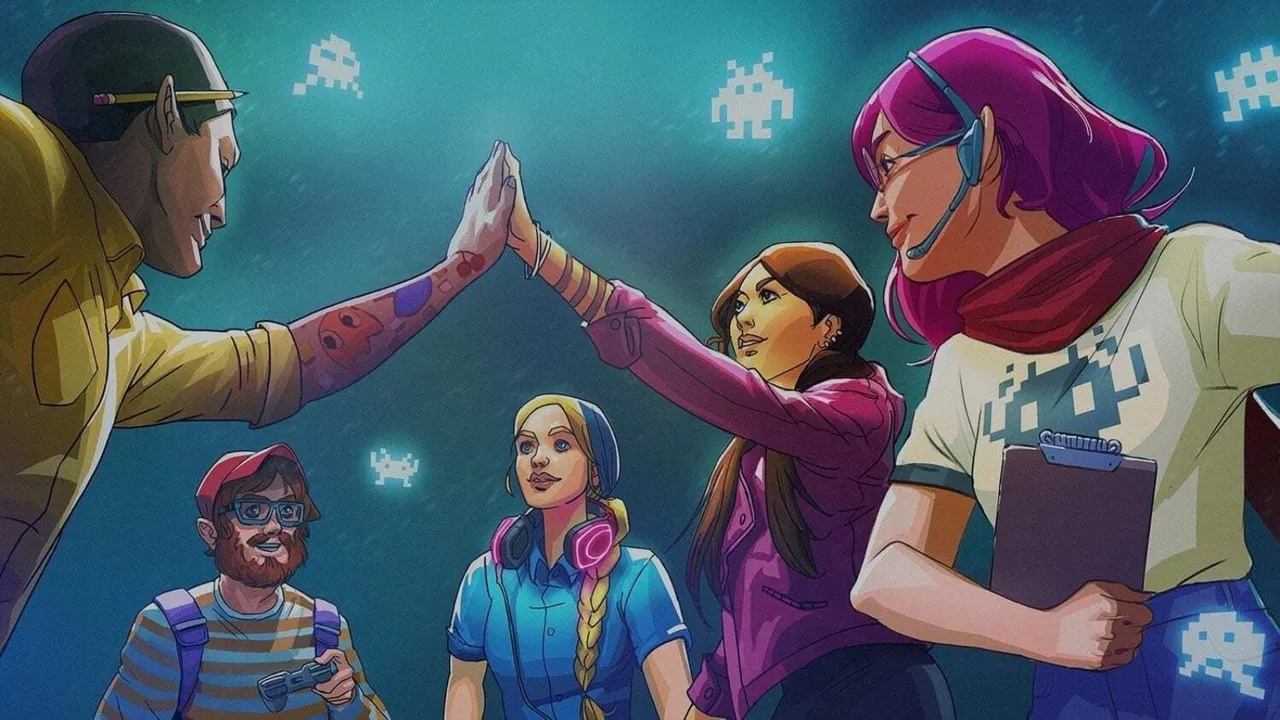Technical Art Jobs in the Video Game Industry: The Ultimate Quick Guide

Introduction
Technical art occupies a unique niche in the video game industry, bridging the gap between the creative and technical aspects of game development. Technical artists are responsible for developing and implementing tools, pipelines, and optimizations that empower artists to create stunning visuals while ensuring the game runs smoothly on target platforms. In this comprehensive guide, we'll explore technical art jobs in the video game industry, discuss different roles, responsibilities, essential skills, and share valuable tips for starting a successful career in this fascinating field.
Roles and Responsibilities in Technical Art
Technical artists in the video game industry can specialize in various areas, each with unique responsibilities and skill requirements. Some common technical art positions in the gaming industry include:
Rigging Artist: Rigging artists are responsible for creating the skeletal structures and control systems that allow 3D characters and objects to be animated. They work closely with character artists and animators to ensure that models are rigged in a way that facilitates realistic and expressive animation while minimizing technical issues and maintaining performance.
Shader Artist: Shader artists develop custom shaders and materials to create unique visual effects and optimize the rendering of game assets. They collaborate with other artists to ensure that shaders are visually consistent with the game's art direction while adhering to the performance requirements of the target platforms.
Technical Animator: Technical animators work at the intersection of animation and programming, developing tools and systems to streamline the animation process and improve the quality of in-game animations. They collaborate with animators and programmers to identify and address technical challenges and implement optimizations to ensure smooth animation playback.
VFX Technical Artist: VFX technical artists create and optimize visual effects, such as particle systems, dynamic simulations, and post-processing effects. They work closely with VFX artists and programmers to develop tools, pipelines, and techniques that enable the creation of visually impressive and performant effects.
Essential Skills for Technical Art Jobs in the Video Game Industry
To excel in a technical art role within the gaming industry, you'll need a combination of artistic, technical, and interpersonal skills. Some of the most important skills for technical artists in the video game industry include:
Proficiency in scripting and programming languages: Technical artists often develop tools and pipelines using scripting languages like Python or programming languages like C++. Familiarity with these languages can be a significant advantage when working in the gaming industry.
Knowledge of 3D modeling and animation software: Technical artists should have a strong understanding of industry-standard 3D modeling and animation software, such as Autodesk Maya, 3ds Max, or Blender. This knowledge is crucial for creating tools and workflows that support the work of other artists.
Familiarity with game engines and real-time rendering: Understanding game engine limitations and real-time rendering techniques is essential for optimizing game assets and maintaining visual quality. Familiarity with game engines like Unreal Engine or Unity can be a significant advantage.
Problem-solving and critical thinking skills: Technical artists often need to identify and address complex technical challenges, requiring strong problem-solving and critical thinking abilities.
Collaboration and communication skills: Technical artists often work as part of a larger team, collaborating with game designers, animators, and programmers. Strong communication and teamwork skills are crucial for ensuring smooth workflows and cohesive game visuals.
Tips for Launching a Successful Career in Technical Art
If you're passionate about video games and eager to join the gaming industry as a technical artist, follow these tips to increase your chances of success:
Build a strong portfolio: A well-crafted portfolio showcasing your best work is essential when applying for technical art jobs in the video game industry on Hitmarker. Include a variety of projects that demonstrate your problem-solving abilities, tools you've developed, and any optimizations you've implemented. Make sure your portfolio is easy to navigate, and highlight any personal or professional projects you've worked on.
Develop your skills through education and practice: Invest time in developing your artistic and technical skills. Consider enrolling in formal education programs, such as a degree or certificate in game art or computer science, or take advantage of online tutorials and workshops to hone your skills. Practice regularly to refine your techniques and stay up-to-date with industry trends.
Network with industry professionals: Networking can open doors and provide valuable insights into the technical art job market. Attend industry events, such as conferences, expos, or local meetups, and connect with professionals through social media platforms like LinkedIn or X.
Collaborate on projects: Working on collaborative projects, such as game jams or modding communities, can help you gain experience, improve your teamwork skills, and expand your portfolio. Plus, these projects can be an excellent way to network with other professionals in the industry.
Tailor your application materials: When applying for technical art jobs, customize your résumé and cover letter to highlight your relevant experience, skills, and accomplishments. Emphasize any projects you've worked on, software proficiency, and your passion for video games to make a strong impression on potential employers.
Conclusion
Technical art jobs in the video game industry offer an exciting opportunity to combine your artistic talents and technical expertise with your passion for gaming. By honing the right skills, building a compelling portfolio, and networking within the industry, you can position yourself for a successful career in this fascinating field. Take the first steps towards your dream job as a technical artist in the world of video games and play a vital role in shaping the future of this dynamic and captivating industry. Check out all of the currently available technical art jobs in the industry by clicking here.
-
 Landing a Summer Internship in the Video Game Industry: The Ultimate Quick Guide
Landing a Summer Internship in the Video Game Industry: The Ultimate Quick Guide -
 Entry-level Jobs in the Video Game Industry: The Ultimate Guide
Entry-level Jobs in the Video Game Industry: The Ultimate Guide -
 Junior-level Jobs in the Video Game Industry: The Ultimate Guide
Junior-level Jobs in the Video Game Industry: The Ultimate Guide -
 Intermediate-level Jobs in the Video Game Industry: The Ultimate Guide
Intermediate-level Jobs in the Video Game Industry: The Ultimate Guide -
 Senior-level Jobs in the Video Game Industry: The Ultimate Guide
Senior-level Jobs in the Video Game Industry: The Ultimate Guide -
 Getting into gaming: Strategies for landing your first game development job with Katherine Mould of Keywords Studios
Getting into gaming: Strategies for landing your first game development job with Katherine Mould of Keywords Studios -
 Art and Animation Jobs in the Video Game Industry: An Overview
Art and Animation Jobs in the Video Game Industry: An Overview -
 Business Operations Jobs in the Video Game Industry: An Overview
Business Operations Jobs in the Video Game Industry: An Overview -
 Communications and Marketing Jobs in the Video Game Industry: An Overview
Communications and Marketing Jobs in the Video Game Industry: An Overview -
 Content Creation Jobs in the Video Game Industry: An Overview
Content Creation Jobs in the Video Game Industry: An Overview -
 Game Design Jobs in the Video Game Industry: An Overview
Game Design Jobs in the Video Game Industry: An Overview -
 Game Development Jobs in the Video Game Industry: An Overview
Game Development Jobs in the Video Game Industry: An Overview